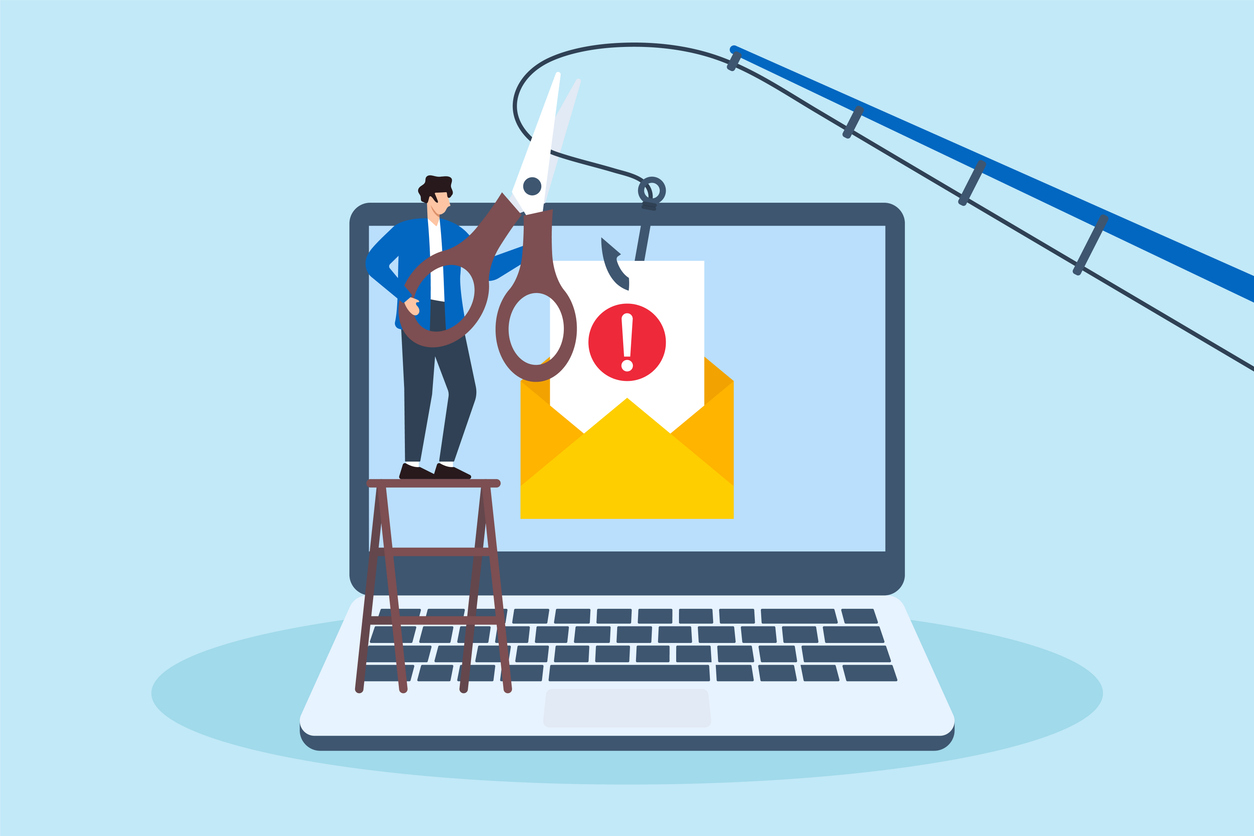
Protect Yourself from Phishing: Don’t Take the Bait
Learn how to spot phishing scams and protect your personal information from fraud. Stay safe online with tips from TAPCO Credit Union and a free course from our partner, GreenPath.
- September 23, 2025
- 1 min
Phishing scams are on the rise, and fraudsters are becoming more sophisticated in their attempts to trick people into sharing personal information. These scams often come in the form of emails, texts, or even phone calls that appear to be from legitimate sources. Just one wrong click on a suspicious link can compromise your email account or device, putting your personal and financial information at risk.
What Is Phishing?
Phishing is when a scammer pretends to be someone you trust—such as a company, government agency, or even a friend—to trick you into clicking a link, downloading a file, or sharing sensitive information. These attacks can look very convincing, which is why it’s important to stay cautious.
Signs of a Phishing Attempt
-
The message creates a sense of urgency, like threatening to close your account if you don’t act immediately.
-
Links or email addresses look unusual or don’t match the organization they claim to represent.
-
The message contains spelling mistakes, poor grammar, or generic greetings (like “Dear Customer”).
-
You’re asked to provide personal or financial information through a link or attachment.
How to Protect Yourself
-
Pause before you click. Hover over links to check their destination before clicking.
-
Be cautious with attachments. Unexpected files—even from people you know—can be dangerous.
-
Use strong, unique passwords. Reusing the same password across accounts increases your risk.
-
Enable multifactor authentication (MFA). This adds another layer of security beyond your password. Enable Now in TAPCO Digital Banking
-
Keep your devices updated. Software updates often contain important security patches.
-
Verify messages directly. Contact companies or friends using trusted phone numbers or websites, not the contact information provided in a suspicious email.
Why It Matters
Phishing can lead to identity theft, stolen funds, and long-term impacts on your financial well-being. Staying alert and following best practices can help keep your information safe.




